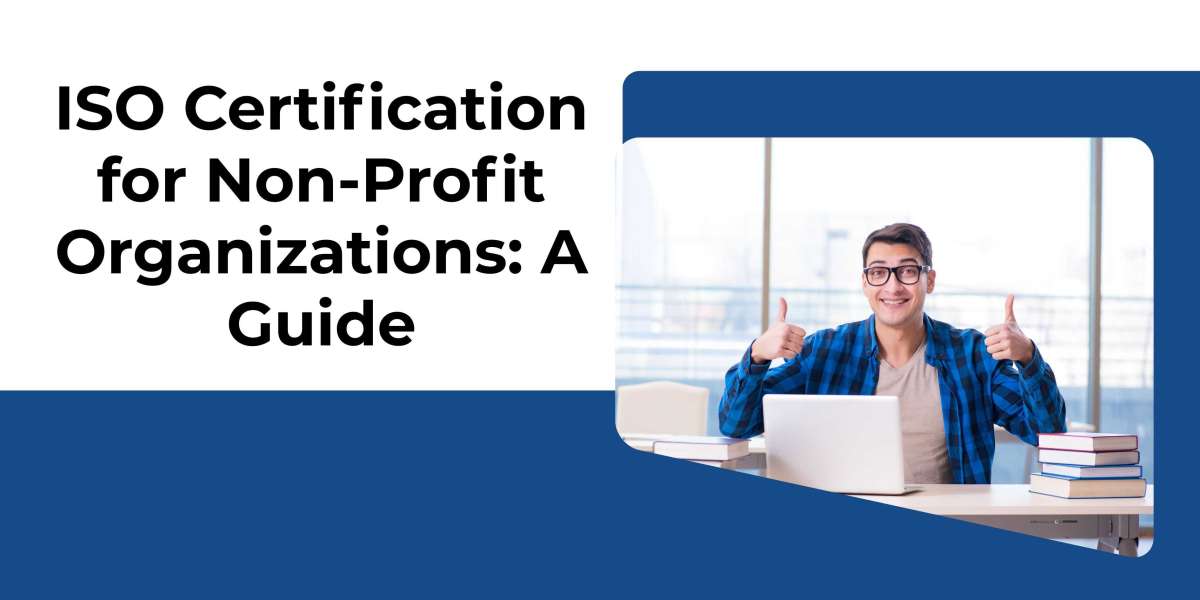Non-profit organizations (NPOs) play a vital role in society by serving communities, supporting causes, and addressing various social challenges. While their goals are not profit-driven, maintaining high standards of operation, transparency, and trust is crucial. This is where ISO Certification can make a significant difference.
In this guide, we’ll explore what ISO Certification is, why it matters for non-profits, the types of ISO standards applicable, the benefits, and the process to obtain certification — all explained in a simple, easy-to-understand way.
What is ISO Certification?
ISO stands for the International Organization for Standardization, which develops global standards to ensure quality, safety, and efficiency across different sectors and industries. ISO certification is a formal recognition that an organization meets these internationally accepted standards.
For non-profits, ISO certification proves that your organization follows best practices, maintains strong processes, and operates with accountability and transparency — all of which are important for donors, partners, and the communities you serve.
Why ISO Certification Matters for Non-Profit Organizations
Even though non-profits are mission-focused rather than profit-focused, they still need to manage operations, finances, projects, and people efficiently. ISO certification helps in the following ways:
- Builds Credibility: Donors and stakeholders gain more trust in your organization when you follow recognized international standards.
- Improves Efficiency: ISO standards help streamline internal processes, leading to better resource management and reduced waste.
- Ensures Accountability: Certification ensures that your organization is transparent and follows ethical practices.
- Opens New Opportunities: Many government and international grants and partnerships require ISO certification.
- Demonstrates Commitment to Quality: It shows that your organization values professionalism and continuous improvement.
ISO Standards Relevant to Non-Profits
Here are some ISO certifications that are especially beneficial for non-profit organizations:
1. ISO 9001: Quality Management System
This is the most popular ISO standard. It ensures that your organization meets customer (or beneficiary) needs effectively and consistently. It helps improve planning, execution, and feedback mechanisms.
Why it’s useful: Ensures programs and services are delivered with consistency and quality.
2. ISO 14001: Environmental Management System
For non-profits working in areas like sustainability, climate action, or environmental awareness, ISO 14001 shows your commitment to reducing your environmental footprint.
Why it’s useful: Demonstrates responsibility towards the environment, and attracts eco-conscious donors.
3. ISO 45001: Occupational Health Safety
This standard ensures a safe working environment for staff and volunteers. It's especially relevant if your organization conducts fieldwork or operates in risky conditions.
Why it’s useful: Protects your team and reduces liability.
4. ISO/IEC 27001: Information Security Management
If your organization handles sensitive data (donor information, program beneficiaries, finances), this certification ensures that your data is managed securely.
Why it’s useful: Builds trust with donors and partners by protecting confidential information.
5. ISO 26000: Social Responsibility (Guidance Standard)
Although not a certifiable standard, ISO 26000 provides guidelines for operating in a socially responsible manner. It’s particularly aligned with the mission of non-profits.
Why it’s useful: Guides ethical and sustainable practices in all areas of operation.
Benefits of ISO Certification for Non-Profits
Let’s look at the key advantages of obtaining ISO certification:
- Enhanced Credibility: Certification sends a strong message to donors, partners, and the public that your organization is reliable, ethical, and well-managed.
- Better Internal Processes: ISO standards require you to document and review your operations. This leads to better planning, fewer mistakes, and more consistent results.
- Improved Donor Confidence: Donors want to know their money is being used wisely. Certification proves you follow a structured and accountable system.
- Staff and Volunteer Satisfaction: Well-defined roles, safety procedures, and communication systems lead to a more positive work environment.
- Legal and Regulatory Compliance: ISO helps you stay compliant with local and international laws and industry standards.
- Competitive Advantage: Many grant-making bodies and governments prefer or require certified organizations for funding and partnerships.
How to Get ISO Certification – Step-by-Step
Here’s a simple breakdown of the certification process:
- Visit the Website: Go to the ISO certification website to start the process.
- Choose Your ISO Standard: Choose your business-based certificate( ISO 9001, ISO 14001, ISO27001 etc)
- Fill Out the Form: Complete the online form with basic details
- Pay the Fee: Complete the payment for the required fee.
- Verification: An executive will check your payment and process your application.
- Confirm Your Certificate: Discuss with the client and issue the certificate.
- Receive Your Certificate: After everything is done, your ISO certificate will be emailed to you.
Note: You can also apply for ISO 9001 Certificate from our website
Conclusion
Getting ISO certification may seem like a big step, but for non-profits, it's a smart investment. It strengthens your organization from the inside, improves donor trust, and shows that you're serious about delivering quality and impact. Whether you’re a grassroots group or an international NGO, ISO certification helps you stay transparent, organized, and effective.








